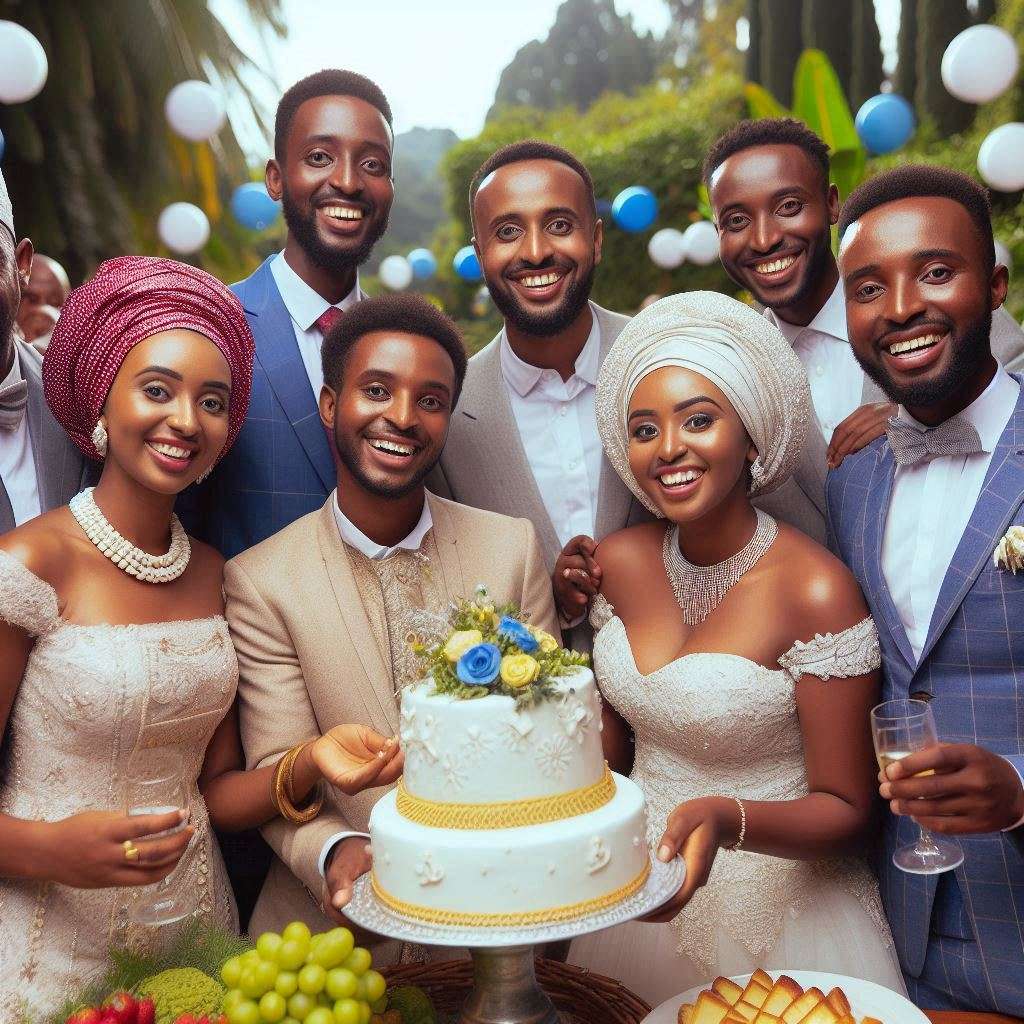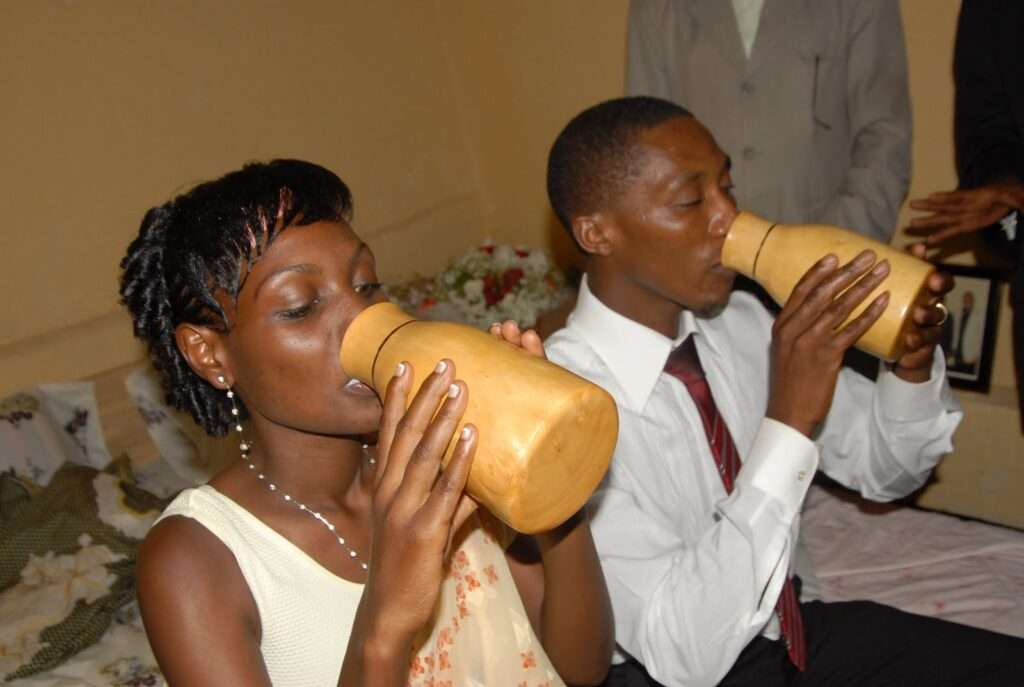
The Role of Family in Rwandan Wedding Ceremonies
Rwandan wedding ceremonies are more than just a celebration of love between two individuals—they are a powerful representation of unity, family honor, and cultural heritage. Rooted in centuries-old traditions, these ceremonies place the family at the heart of every ritual and celebration. From the first formal meeting to the final blessing, the role of family in Rwandan weddings is not only significant—it is central.
In this article, we explore how family influences every stage of traditional Rwandan marriage customs, and why these cultural practices remain deeply respected today.
Marriage as a Family Bond in Rwandan Culture
In Rwandan culture, marriage is a family institution rather than a personal choice. It brings together two extended families rather than just the bride and groom. Family elders, uncles, aunties, and even cousins play crucial roles throughout the process, from proposal to post-wedding blessings.
In Rwanda, the idea of umuryango (family or clan) carries weight and tradition. When a couple decides to marry, their families evaluate compatibility, social values, and lineage. This emphasis on family ensures that the union strengthens both cultural and familial ties.
Gufata Irembo – The First Step of the Journey
The traditional process begins with Gufata Irembo, a formal introduction where the groom’s family visits the bride’s family to ask for permission to initiate marriage proceedings. This important step in Rwandan wedding traditions is rich in symbolism.
Family elders speak on behalf of the groom, bringing traditional gifts like banana beer (urwagwa). They engage in poetic exchanges full of humor, riddles, and wisdom. This ceremonial dialogue builds mutual respect between families and marks the beginning of the official courtship process.
For those interested in wedding planning in Rwanda, Gufata Irembo is a must-do step that connects the couple’s love story with cultural tradition.
Gusaba – The Traditional Rwandan Dowry Ceremony
The Gusaba ceremony is perhaps the most iconic element of traditional Rwandan marriage customs. This is where the groom’s family formally asks for the bride’s hand in marriage and offers a dowry (inkwano) as a gesture of gratitude and respect.
Contrary to some misconceptions, Rwandan dowry traditions are not about buying the bride. Instead, the dowry—usually in the form of cows or money—represents the value of the bride and appreciation for her upbringing. Elders conduct these negotiations respectfully. They symbolize trust, responsibility, and unity.
This ancient ritual reinforces the importance of family involvement in securing a solid foundation for the marriage.
Gukwa – The Bride’s Farewell to Her Family
Gukwa is a deeply emotional ceremony where the bride formally says goodbye to her family. Often referred to as the bride’s send-off, this tradition highlights the role of mothers, aunties, and elder women in preparing the bride for her new life.
The bride dresses in imishanana, a graceful Rwandan attire. She is surrounded by female relatives who sing traditional songs and offer advice. These moments include acts of nurturing, celebration, and sometimes tears. They show how Rwandan family values are passed down from one generation to another.
Gutinyisha – Welcoming the Bride to a New Home
In a beautifully reciprocal gesture, the groom’s family organizes the Gutinyisha ceremony to welcome the bride into her new household. This event introduces her to her in-laws, particularly her mother-in-law. It formally acknowledges her as a new member of the family.
This tradition reflects African family wedding values. The bride is not just marrying a man but joining an entire community. Elders give her guidance on how to live in harmony and contribute to the family. It’s an intimate ceremony that blends wisdom, love, and acceptance.
Gutwikurura – The First Public Meal as a Married Woman

After the bride officially joins her new family through the Gutinyisha ceremony, another important tradition follows: Gutwikurura. This post-wedding ritual marks the bride’s first public appearance and meal in her husband’s family home. The word Gutwikurura loosely translates to “uncovering” or “unveiling,” symbolizing the bride’s formal acceptance into the community as a married woman.
During Gutwikurura, the bride serves or shares a prepared meal in a communal setting with her in-laws and extended family. This meal is symbolic. It represents her hospitality, grace, and readiness to take on her new role as a wife.
Traditionally, the bride dresses in elegant attire and is accompanied by songs, blessings, and humor from family elders. The groom’s family may offer gifts or advice. Some regions include traditional performances during this event.
Gutwikurura completes the transition from being a daughter in her parents’ household to a respected woman in her new home. It reinforces the idea that marriage in Rwanda is a public, family-sanctioned institution.
Blending Traditional and Modern Wedding Styles
Many couples today combine traditional Rwandan marriage customs with modern Christian or civil ceremonies. A church wedding followed by a reception at a hotel or garden venue is common, especially in Kigali.
Even in modern settings, family roles in African weddings remain strong. Parents and elders give speeches, coordinate planning, and preserve cultural elements. Often, traditional attire is worn during receptions. Families may include dance or poetry to honor heritage.
This blend of modern elegance and cultural pride makes Rwandan wedding ceremonies unique and meaningful.
Cultural Performances and Clan Symbols
During both traditional and modern weddings, Rwandan cultural performances like Intore dancing, drumming, and storytelling take center stage. These performances are not just entertainment. They are expressions of family history, clan identity, and cultural pride.
Families use this opportunity to celebrate their roots and pass on traditions. They help connect the younger generation to their ancestry. Many wedding planners now include cultural elements in the celebration, reflecting the popularity of traditional African weddings among young couples.
Ongoing Family Support After the Wedding
In Rwanda, family involvement doesn’t end with the wedding. After the ceremony, both families continue to support the newlyweds emotionally, financially, and spiritually.
Elders often serve as mediators when conflicts arise. Parents help the couple set up their home. This ongoing engagement reflects the value of intergenerational support in Rwandan culture.
Weddings mobilize the entire community. Siblings, cousins, and neighbors help fundraise, cook, decorate, and host guests. These actions show the strength of Rwandan community and family values.
Weddings as a Mirror of Rwandan Family Values
The essence of a Rwandan wedding ceremony lies not just in rituals, attire, or performances—but in the sacred role of family. Family initiates, blesses, and sustains the marriage process from start to finish.
As Rwanda continues to modernize, its weddings remain reflections of cultural identity, family unity, and heritage. Whether you’re planning a wedding, attending one, or learning about African marriage traditions, understanding the role of family in Rwandan weddings reveals a culture rooted in honor and togetherness.